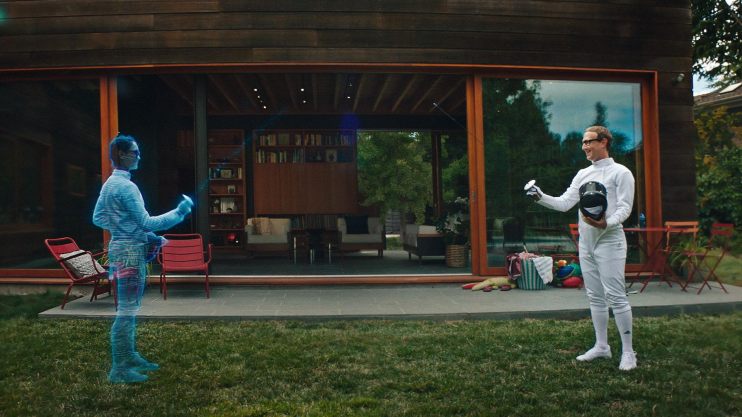Meta exec: Interacting in (not on) the internet will transform our society

There’s a poster on the wall of our offices which asks the question “What would you do if you weren’t afraid?” It’s a brilliant question which encourages us to think bravely and confidently about the future.
Last month, Mark Zuckerberg took to the stage virtually at Facebook’s annual conference to answer that question.
He unveiled that from now on, all our apps and technologies will exist under one new company brand called Meta. Meta’s focus will be to help bring the metaverse to life and help people connect, find communities and grow businesses.
But what is the metaverse?
We see the metaverse as the successor to the mobile internet – an embodied internet where you’re in the experience, not just looking at it. You’re going to be able to do almost anything you can imagine – get together with friends and family, work, learn, play, shop and create. Importantly, the metaverse will be characterised by social presence, the feeling that you’re right there with another person, no matter where in the world you happen to be.
This isn’t about replacing physical experiences. After all, what could feel better than a hug from a loved one?
Instead, we want to improve online experiences for those times when physical ones aren’t possible for whatever reason.
The metaverse is not something we will build alone.
We’ll build it along with creators, developers, businesses and work with experts and policy makers to do so responsibly. We know that in the past, the speed with which new technology has emerged has sometimes left policymakers and regulators playing catch-up. We can’t let that happen this time around. The conversations will be open and the spirit will be collaborative.
Our hope is that, if we all work at it, then within the next decade the metaverse will reach a billion people, host hundreds of billions of dollars of digital commerce, and support jobs for millions of creators and developers.
It’s an exciting next step for our company, but more importantly, it’s an exciting next step for us all.
I can see the metaverse transforming so many areas of life. Especially, of course, the metaverse can transform how we socialise. In 2016 I was diagnosed with Follicular Lymphoma which is a rare form of blood cancer. I joined a Facebook group which linked me up with patients all over the world suffering from the same cancer as me. We shared our experiences, symptoms, compared treatment plans and lent on each other for support. Most of those people were on the other side of the world.
In the metaverse, that barrier could be broken.
How many people have stories of meeting their friends or partners on one social media site or another? With the metaverse, this possibility will be amplified.
It also has the potential to revolutionise how we shop and interact with businesses.
The metaverse will also transform how we work. Like so many others, I’m working from home. But hybrid-working is going to be a lot more complex, when some people are together but others are still remote.
In the metaverse, my colleagues and I could be seated in the same meeting or work on the same project, even if we live in different parts of the world.
In the future, rather than going into a shop or scrolling on my phone to find a new winter coat, I could potentially shop for one in the Arctic and see how it looks and feels in that environment. If I wanted to buy a car, rather than going to a static showroom, I could take an adrenaline-pumping test-drive around the Monaco grand-prix.
I know that some people will say that this isn’t a time to focus on the future. I want to acknowledge that there are of course important issues to work on in the present. But we also need to keep learning, building and bravely moving forward and that’s what the metaverse – and our new company identity Meta – are all about.
